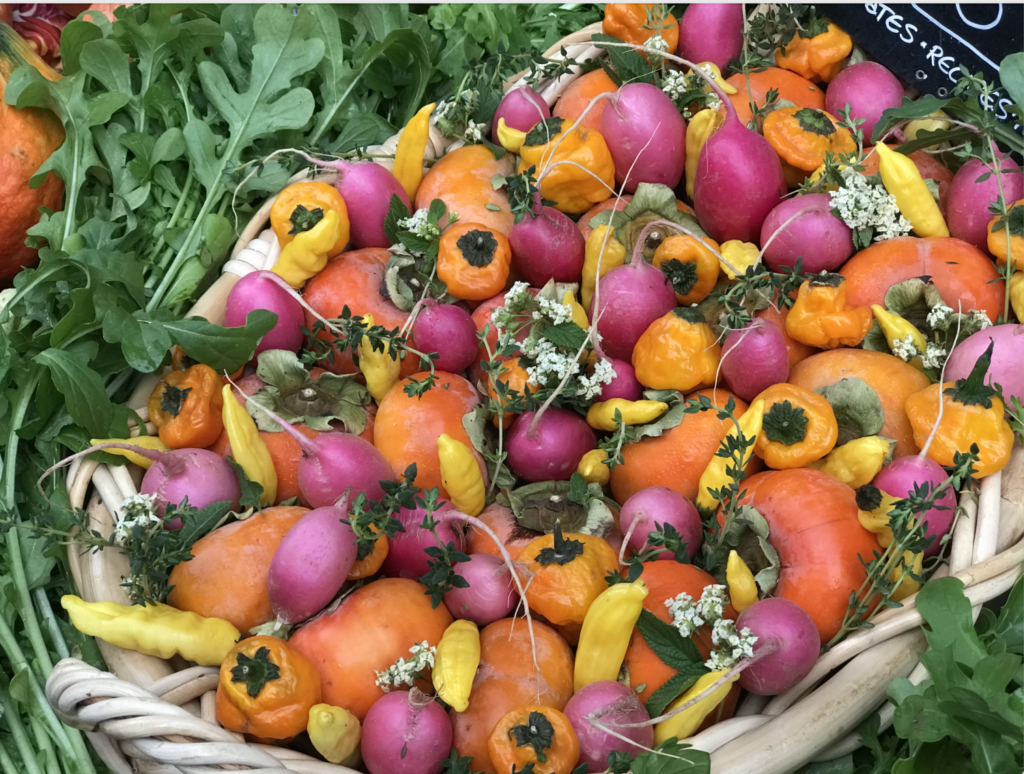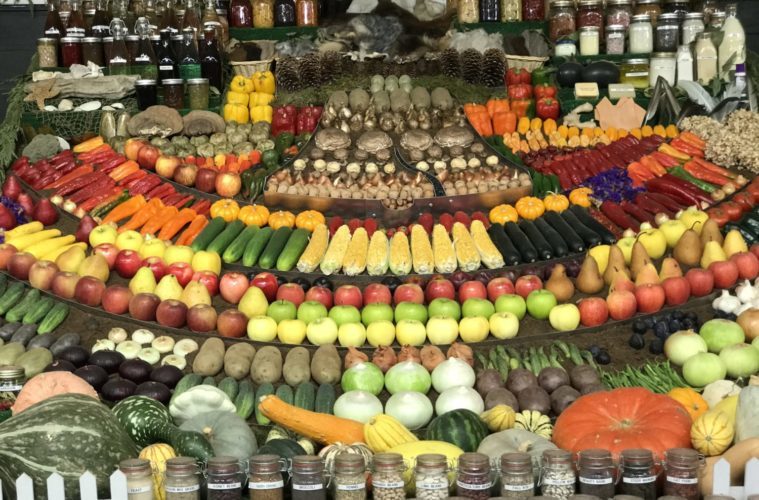California high school student and member of the Youth Leadership Council of Farm Sanctuary, America’s first farm animal sanctuary and advocacy organization, 15-year-old Ava Cuevas from Riverside County applauds California for being the first state to fund plant-based meals and argues in support of federal legislation to expand student access to plant-based foods nationwide in this OP-Ed piece for Irvine Weekly.
More and more teens today are choosing to eat plant-based for environmental, animal welfare, health, and social justice reasons, but that choice is not always honored at school. Cuevas serves on the Friends of the Earth Youth Steering Committee, which is working in support of the legislation.

Ava Cuevas (Courtesy Farm Sanctuary)
Plant-Based School Meals Benefit Everyone – Even Those Who Eat Meat
California recently became the first state to fund plant-based school meals through its new $300 billion budget. Now, it’s on all of us to ensure that this victory in California is just the start. For the first time, legislation for Congress’ Child Nutrition Reauthorization (CNR) process includes language for creating a voluntary plant-based school meal pilot program and expanding student access to plant-based beverages. While this may seem like a small step, it’s actually a critical opportunity for Congress to improve the health and well-being not only of students in K-12 schools, but workers, communities, animals, and the planet. Including this language in the CNR is monumental for everyone – even those who eat meat – because plant-based meals cause significantly less harm in ways that benefit our communities.
All students are not the same
Schools must cater to students’ dietary needs. Offering plant-based lunches and nondairy milk allows all students to eat a nutritious and filling meal that aligns with their dietary needs, and ensures they are ready to learn. Not eating meat for personal/religious reasons or being lactose intolerant are valid dietary needs. According to the National Institute of Diabetes and Digestive and Kidney Diseases, 68% of the world population is unable to digest lactose. Schools offering only dairy beverages leave vegan or lactose-intolerant students thirsty and create waste from thrown away milk. Consuming dairy causes stomach pain, bloating, and nausea for lactose-intolerant students, preventing them from fully engaging in class.
Plant-based school meals benefit heart health
A recent study revealed that 12-15-year-olds who consumed ultra-processed foods had lower cardiovascular fitness. The foods considered ultra-processed? Pizza, hotdogs, burgers, and chicken nuggets…regular foods served for school lunch. Meanwhile, plant-based foods contain whole grains, lentils, fruits, vegetables, nuts and seeds, foods that kids are often lacking in low-income communities and that can help alleviate cardiovascular disease.
Plant-based school meals reduce animal suffering
99% of animals raised for food in the United States are raised in factory farms where they suffer unimaginably. Animals in the meat, dairy, and egg industries live shortened lives in filthy, cramped spaces. In the egg industry, hen cage sizes are 67-86 square inches and confine typically 4-5 hens in a space smaller than a regular lined sheet of paper. In the pork industry, mother pigs, referred to as sows by the industry, are confined to gestation crates barely bigger than their bodies for their entire pregnancy (16 weeks) followed by farrowing crates, which are slightly larger than gestation crates, to give birth and nurse their piglets. It is not widely known that animals in the dairy and egg industries are slaughtered when their bodies become too exhausted from production.

California recently became the first state to fund plant-based school meals (Michele Stueven)
Plant-based school meals benefit the Earth
The meat industry alone contributes to 60% of all greenhouse gasses around the world. In fact, the raising and culling of livestock emits 44% of methane, with cows being the highest producer of this greenhouse gas. For comparison, animal-based foods make up 57% of global food production emissions, while plant-based foods make up 29%. The meat industry is a primary contributor to climate change, but is also responsible for mass clearings of land, releasing dangerous fumes, causing soil erosion, and generating animal run-off that pollutes nearby communities’ water sources.
Animal agriculture uses 36 to 74 trillion gallons of water per year in the United States alone. Currently, 40 states are facing droughts. The consumption of animal-based products won’t improve our situation if water is used for livestock, whose body weight is 60% to 70% water. In comparison to meat, plant-based meat alternatives use 72-99% less water, and consumers who eliminate meat and dairy products could save at least 50% in their water use.
Plant-based lunches in schools can benefit workers and communities
Slaughterhouse work is dangerous. There is a 50% higher injury rate for meat and poultry workers than in the private sector, and they also are more likely to suffer from PTSD (post-traumatic stress disorder).
Animal agriculture also has devastating effects on neighboring communities. Industrialized agriculture facilities often are located near low-income and marginalized communities. In some states, industrialized agriculture facilities contribute to environmental racism, disproportionately impacting communities of color. These facilities compromise the health and wellbeing of surrounding community members who can suffer from headaches, respiratory issues, birth defects, and a decreased quality of life. A plant-based diet produced through sustainable and fair labor practices can support meaningful change that benefits workers, communities, the environment, and animals.
Many people don’t realize the impact they have on this planet, nor the change they can create. I became plant-based at 7 years old, which fueled me to become the student and writer I am today. Providing the option to choose a plant-based lunch gives students the opportunity to choose a nutritious, environmentally friendly meal that may otherwise not have been accessible in their own community or home. All students deserve the opportunity to choose meals that will best support them, their communities, and the Earth.
Ava Cuevas is a 15-year-old high school student in Winchester, California, a member of Farm Sanctuary’s Youth Leadership Council, and serves on the Friends of the Earth Youth Steering Committee.
Advertising disclosure: We may receive compensation for some of the links in our stories. Thank you for supporting Irvine Weekly and our advertisers.

